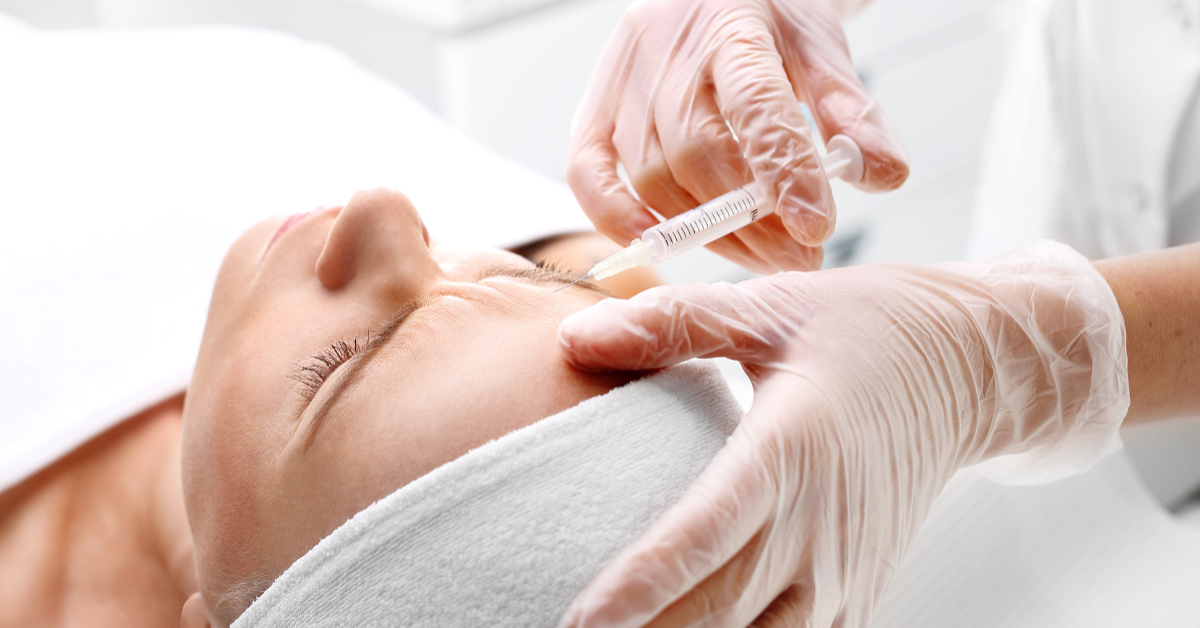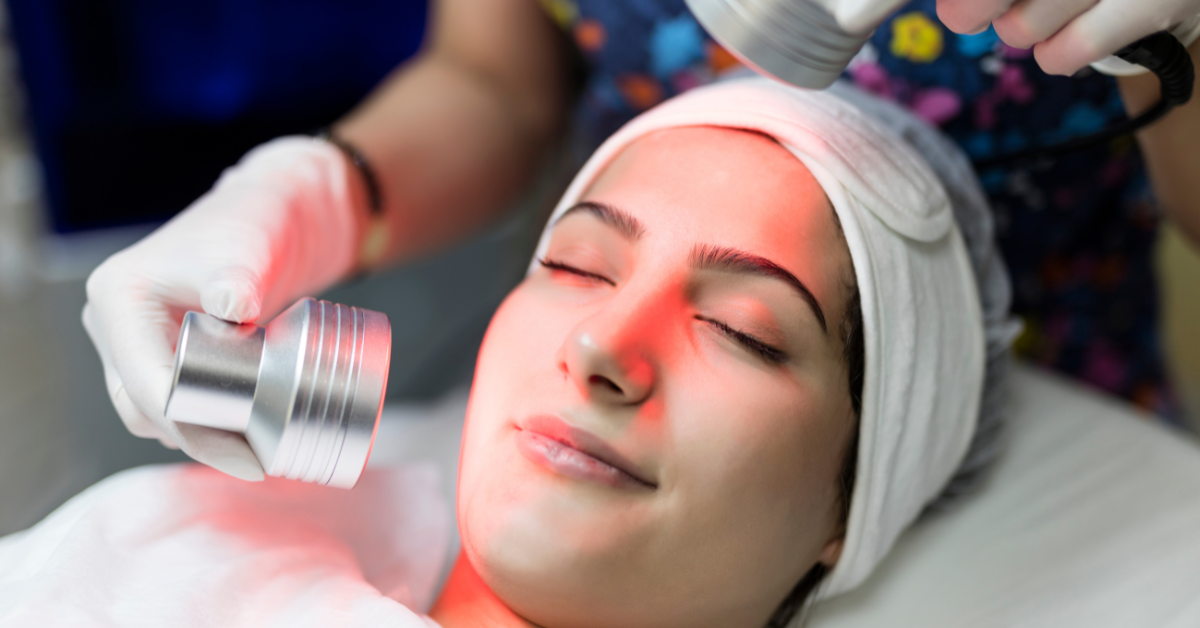
Are you an Aesthetic Nurse Practitioner (NPs) seeking ways to broaden your expertise and scope of practice? As an aesthetic NP, keeping up-to-date with certifications can significantly expand your skills and marketability.
This article will explore important certifications available to aesthetic NPs and how they can help you expand your practice.
The Growing Demand for Aesthetic NPs
The demand for aesthetic procedures has surged in recent years, driven by a social emphasis on appearance and a preference for non-invasive treatments. According to The Aesthetic Society, aesthetics procedures generated $11.8 Billion in revenue across the globe in 2022.
This trend is further fueled by advancements in technology that make procedures safer and recovery times shorter. More individuals are opting for aesthetic enhancements, opening up numerous opportunities for nurse practitioners in the field of aesthetics. Additionally, the increased accessibility and normalization of cosmetic procedures have expanded the client demographic, which has broadened the market for aesthetic services.
Why Aesthetic Certifications Matter
To excel as an aesthetic NP, obtaining the right certifications is key. These certifications validate your expertise and provide reassurance to clients about your skills and knowledge in performing aesthetic procedures.
Marketability
Patients often seek practitioners who have demonstrated a commitment to their education and have the credentials to back up their skills. By obtaining certifications in various aesthetic procedures, you can improve your reputation and attract a broader clientele. This distinction is particularly crucial in saturated markets where patients have an abundance of choices, and credibility can significantly influence their decisions.
Patient Satisfaction and Trust
Patients are more likely to trust practitioners who have demonstrated a commitment to their education and skill development. Advanced certifications reassure patients that they are in capable hands, leading to higher satisfaction rates and repeat business. When patients feel confident in their practitioner’s expertise, they are more likely to engage in open communication, leading to better treatment outcomes and stronger patient-practitioner relationships.
Career Growth
In addition to attracting more clients, advanced certifications can lead to professional opportunities such as partnerships with high-end clinics, speaking engagements, and teaching positions. Being recognized as an expert in certain aesthetic procedures can elevate an NP’s status within the industry, opening doors to collaborations and innovative projects.
Ultimately, the investment in certifications can translate into long-term career growth and stability, as well as a more diverse and loyal client base.

Essential Certifications for Aesthetic Nurse Practitioners
Botox
Botox training typically includes understanding facial anatomy, learning injection techniques, and mastering safety protocols. Certification courses often involve hands-on practice under the supervision of experienced practitioners, which is crucial for developing confidence and precision.
These courses also cover client consultation techniques, helping practitioners understand client expectations and deliver results that align with their aesthetic goals. Additionally, continuous practice and learning about new injection techniques can further enhance an NP’s proficiency in Botox administration.
Dermal Fillers
Similar to Botox, dermal fillers certification involves studying facial structure, learning various injection techniques, and understanding the properties of different filler materials. This certification is essential if you’re looking to offer comprehensive aesthetic services, as it allows you to address a wider range of client concerns, from volume loss to contouring.
Understanding the nuances of different filler products and their applications can improve treatment outcomes and client satisfaction. Advanced training can also include techniques for specific areas, such as lip enhancement or cheek augmentation.
Laser Training and Light-Based Therapy
Laser treatments and light-based therapies are widely used in aesthetic medicine for hair removal, skin rejuvenation, and treating pigmentation issues. Certification in laser training ensures that practitioners can operate laser equipment safely and effectively.
These certifications cover a range of topics, including understanding different laser technologies, patient assessment, and post-treatment care. Mastery in laser treatments not only broadens the scope of services you can offer but also attracts clients seeking advanced aesthetic solutions.
Types of Laser Treatments
-
Hair Removal: Laser hair removal is a popular procedure that requires precise techniques to avoid skin damage. Certification ensures that practitioners understand the nuances of different skin types and hair textures, optimizing treatment efficacy.
-
Skin Rejuvenation: This involves using lasers to improve skin texture and tone, reducing wrinkles and fine lines. Certification covers various techniques to target different skin concerns, providing a comprehensive approach to anti-aging.
-
Pigmentation Treatment: Lasers can target pigmented areas, helping to even out skin tone. Understanding the science behind pigmentation and the appropriate laser settings is crucial for achieving optimal results without adverse effects.
Micro-needling
Micro-needling involves creating tiny punctures in the skin to stimulate collagen production. Certification courses teach NPs how to use micro-needling devices effectively and safely, ensuring they can perform the procedure with minimal discomfort to the patient. Courses also cover patient assessment and post-procedure care, which are critical for maximizing results and minimizing complications. Staying informed about the latest micro-needling technologies and techniques can further enhance treatment outcomes.
Microdermabrasion
Microdermabrasion is a technique that exfoliates the skin, removing dead skin cells to reveal a fresher complexion. Certification ensures practitioners are skilled in using the equipment and understanding the skin’s response to treatment. This knowledge is essential for tailoring treatments to individual skin types and conditions, ensuring optimal results. Additionally, understanding contraindications and potential side effects is crucial for maintaining patient safety and satisfaction.
Chemical Peels
Chemical peels are used to improve skin tone and texture by removing the outer layers of skin. Certification in chemical peels involves learning about different types of peels and their applications, as well as mastering the application techniques. This certification allows practitioners to offer treatments ranging from mild exfoliation to deep resurfacing, catering to various skin concerns and client preferences. Additionally, understanding post-peel care is vital for ensuring safe recovery and achieving the desired outcomes.

Additional Certifications to Consider
Aesthetic Nurse Practitioner Certification (CANS)
The Certified Aesthetic Nurse Specialist (CANS) certification is a valuable credential for NPs in aesthetics. It demonstrates a comprehensive understanding of aesthetic procedures and a commitment to maintaining high standards in practice. This certification is recognized by industry leaders and can enhance career prospects by distinguishing you as a qualified expert in the field. It also involves continuous education, ensuring that practitioners remain at the forefront of aesthetic advancements.
The Plastic Surgical Nursing Certification Board (PSNCB) offers this certification for NPs in the aesthetic and cosmetic industry.
According to the PSNCB, to sit for the exam, NPs must:
-
Be currently licensed as an NP or Advanced Practice Registered Nurse (APRN) in the United States.
-
Have at least 1,000 practice hours within core specialties during the last two years.
-
Have a minimum of two years of nursing experience as a registered nurse within the four core specialties in collaboration or in a practice with a physician that is board Certified within a core specialty or a Nurse Practitioner who is CANS certified and whose CANS certification is in good standing. This can be in a general staff, administrative, teaching, or research capacity within three years prior to application, depending on state practice requirements.
-
Be currently working in collaboration or in a practice with a physician that is Board Certified within one of the following specialties: Plastic/Aesthetic Surgery, Ophthalmology, Dermatology, Cosmetic Surgery or Facial Plastic Surgery (ENT) or a Nurse Practitioner who is CANS certified.
-
Have your collaborating core physician or Nurse Practitioner who is CANS certified, who holds a current full and unrestricted license, provide a letter of recommendation.
-
If the applicant does not work in collaboration with a Board Certified Core physician, they must provide a screenshot of their State or Provincial Board’s Scope of Practice verifying that they do not need a supervising physician or allows a Nurse Practitioner as their supervisor or are able to practice independently.
-
If the Nurse Practitioner practices independently, they must have a physician who they refer patients and provide a letter of recommendation from this physician.
-
Have a letter of recommendation from a Nurse Practitioner who is CANS certified.
Dermatology Certifieed Nurse Practitioner (DCNP)
NPs can also become a Dermatology Certified Nurse Practitioner (DCNP) with the Dermatology Nurse Practitioner Certification Board. According to Nurse.org, to be eligible for this certification, NPs must:
-
Have a master’s degree in nursing
-
Be nationally certified as a nurse practitioner
-
Have a minimum of 3,000 hours of general dermatology practice within the past three years
-
Currently practice dermatology
Staying Current in Aesthetic Practice
The field of aesthetic medicine is constantly evolving, with new technologies and techniques emerging regularly. Staying current is essential for providing the best care to your clients. This commitment to ongoing education ensures that you can offer the latest treatments and address emerging trends and client expectations.
Continuing Education
Participating in continuing education opportunities ensures you stay updated on the latest advancements. Many certification programs offer ongoing education as part of their curriculum, allowing practitioners to continually refine their skills. Additionally, attending workshops, conferences, and seminars can provide valuable insights and hands-on experience with new technologies.
Networking and Professional Organizations
Joining professional organizations provides access to resources, networking opportunities, and industry updates. Being part of these communities allows you to connect with peers, share experiences, and learn from industry leaders. Networking can also lead to collaborative opportunities and career advancement, making it a crucial aspect of professional growth.
While not comprehensive, here is a list of some aesthetic medicine professional organizations.
-
International Society of Plastic and Aesthetic Nurses (ISPAN)
-
American Association of Aesthetic Medicine and Surgery (AAAMS)
Conclusion
In the competitive world of aesthetic medicine, obtaining the right certifications is crucial for success. With the appropriate training and credentials, aesthetic nurse practitioners can offer high-quality care and meet the growing demand for cosmetic procedures.
By investing in your education and staying current with industry trends, you can build a rewarding career in aesthetic nursing. This commitment to excellence not only benefits your clients but can improve your professional reputation and help your practice thrive.